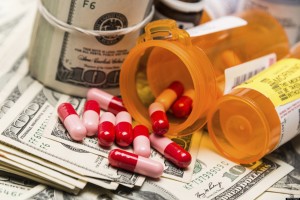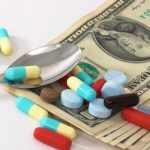
Big Pharma is actively blocking efforts to halt the opioid epidemic… because there’s profit in POISON
Tuesday, August 22, 2017 by Jhoanna Robinson
http://www.fda.news/2017-08-22-big-pharma-is-actively-blocking-efforts-to-halt-the-opioid-epidemic-because-theres-profit-in-poison.html

Robin Feldman, a professor in pharmaceutical law at University of California, testified in September 2016 before the House of Representatives judiciary subcommittee about the state of the opioid addiction in the United States, saying that even though “open and vigorous competition is the backbone of U.S. markets…we are not seeing that in the market for addiction medicine.”
This is because, according to Feldman, big pharmaceutical companies hold a monopoly over the manufacture and release of major commercial drugs.
Statistics show that the percentage of people in America that perish due to drug overdoses has quadrupled since the late 1990s; drug overdoses are now ranked as the leading cause of death for Americans under 50 years old.
Feldman and her colleagues studied the filing of petitions at the Food and Drug Administration (FDA) in their book Drug Wars: How Big Pharma Raises Prices and Keeps Generics off the Market.
“Some of the petitions were just stunning to us. For example, some petitions soberly ask the FDA to require, well, what it already requires, such as ensuring that the generic drug product is stable and has an appropriate shelf life. Other petitions tie the application up in knots for reasons that are hard, even for the FDA, to discuss with a straight face,” Feldman noted.
For instance, the manufacturer of the blood pressure medicine Plendil asked the FDA to delay approval of the generics by saying they are concerned over how different types of oranges in orange juice might affect absorption of the medication and demanding additional data on the juices that are used during clinical trials.
Pharmaceutical companies employ a tactic to modify the dosage or modulation of a drug whose patent is about to expire, allowing them to stamp a brand-new set of patents on their “new and improved” version of the drug.
Another way that pharmaceutical companies is putting one over the people is by constantly setting price hikes on their medicines. As a matter of fact, in 2015, 80 percent of the profit growth of the 20 largest drug companies was brought about by huge price hikes.
For instance, Foster City, California-based biopharmaceutical company Gilead Sciences’ hepatitis C drug, Solvadi, which sells for the equivalent of $1,000 abroad, sells for $84,000 here.
Cincinnati taking action against big pharmaceutical companies over opioid pandemic
The city of Cincinnati is suing Chesterbrook, Pennsylvania-based AmerisourceBergen Corp.; Dublin, Ohio-based Cardinal Health, Inc.; and San Francisco, California-based McKesson Corp. Its mayor, John Joseph Cranley, said the companies are accessories to the drastic opioid shipment volume increase to pharmacies and hospitals, and are therefore in violation of the Controlled Substances Act that was enacted in 1970.
The lawsuit aims to recover money that the city spent on the whole opioid epidemic, including current and future damages.
“We are coming after them. What’s motivating these companies is greed,” he said at a press conference on Tuesday, August 15.
This lawsuit follows a similar suit that the city lodged in May against New Brunswick, New Jersey-based Johnson & Johnson and Stanford, Connnecticut-based Purdue Pharma, among others.
“These companies have made billions of dollars, partly by destroying lives. There is blood on their hands,” Cincinnati Councilman Alexander Paul George “P.G.” Sittenfeld said.
The National Center for Health Statistics estimates that fatalities from drug overdose reached 19.9 per 100,000 people in 2016, an increase from 2015’s 16.7. Most of the ones who suffered from opioid abuse were white, middle-aged men, and the states wherein there was found the highest number of such abuse include New Hampshire, West Virginia, Kentucky, and Ohio.
President Donald John Trump vowed to take action on the matter. “We’re going to spend a lot of time, a lot of effort, and a lot of money on the opioid crisis,” he said at his New Jersey golf club on Thursday, August 10. (Related: New healthcare bill uses $45 billion in taxpayer money to fight the opioid epidemic caused by wealthy pharmaceutical corporations.)
Read up on more stories such as this one at Opioid.news.
Sources include:
Tagged Under: Tags: addiction, Big Pharma, Dangerous Medicine, drug overdose, monopoly, Opioid, Opioids, Pharmaceutical companies





